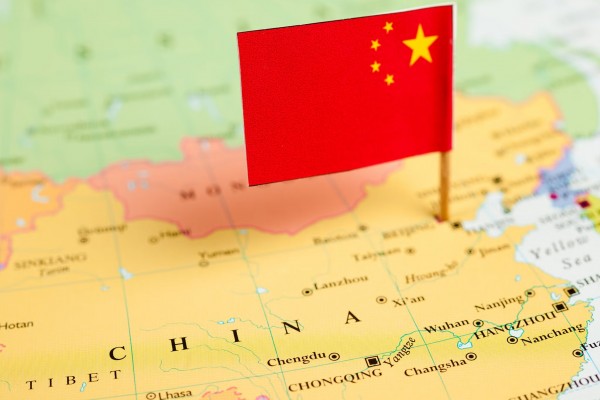Review № 19 of Chinese Antitrust News from the Experts of the BRICS Competition Centre
- “China does not need ex-ante regulation for digital platforms”
- The draft Anti-Unfair Competition Law was submitted to the Ministry of Justice for consideration
- Draft Guidelines on Antimonopoly Compliance of Economic Concentration Published
- SAMR international cooperation: meetings with the Ambassador of the Republic of Belarus and the head of UL
- Alibaba CEO change
- Jack Ma urges Alibaba to shift focus to Taobao marketplace
- The development of AI may do more harm than good to the labor market
- US lawmakers plan to urge Ford Motor and General Motors to reduce dependence on China
- First list of registered deep synthesis algorithms
- US proposes to remove incentives for Chinese suppliers
- China develops listing by registration system
“China does not need ex-ante regulation for digital platforms”
At a seminar on regulating Chinese online platforms at the Chinese Law Center of the University of Hong Kong, Professor Wang Xiaoye, who is one of the founders of the PRC Antitrust Law, said that the existing legal system is enough for China to combat anti-competitive practices in the digital sphere — this illustrates, for example, antitrust investigation against Alibaba. In addition, the new version of the Antimonopoly Law already contains provisions for the digital economy, and according to Wang Xiaoye, China does not need separate legislation specifically for digital platforms.
At the same event, Fangda Partners partner Wang Jin said that SAMR is looking into sectors of the digital economy that are still little affected by antitrust enforcement. While the agency previously focused on two types of anti-competitive practices—exclusivity enforcement and excessive pricing—data monopoly, most favored nation treatment, and differentiated pricing may soon be covered as well.
The draft Anti-Unfair Competition Law was submitted to the Ministry of Justice for consideration
According to the PaRR portal, SAMR submitted the draft amendments to the Anti-Unfair Competition Law for consideration by the Ministry of Justice. The Ministry will seek the opinion of other government bodies and submit the draft for further consideration by the State Council. If the State Council approves the proposed changes, the draft will be submitted for discussion to the highest legislative body: the Standing Committee of the National People's Congress. At least one more round of public consultations will be held on the project before it reaches the NPC SC. The final text is expected to be adopted in the first quarter of 2024. According to sources, the concept of “position of relative advantage”, which was contained in its earlier version, disappeared from the draft.
Source: PaRR
Draft Guidelines on Antimonopoly Compliance of Economic Concentration Published
SAMR has published draft antitrust compliance guidance for concentration transactions for public consultation. It lists the risks associated with economic concentration and measures to recognize and prevent them. It also provides examples of incorrect analysis of the transaction, which is why the company does not consider it necessary to coordinate it with the regulator — this, in turn, leads to the illegal commission of economic concentration. High-risk entities are companies with an annual turnover within China of more than 400 million Chinese yuan.
The collection of opinions will last until July 3. If adopted, the Guide will be for reference only and will not be binding.
SAMR international cooperation: meetings with the Ambassador of the Republic of Belarus and the head of UL
Deputy Head of SAMR Pu Chun met with Ambassador of the Republic of Belarus to China Yury Senko. The parties expressed their joint intention to develop trade and economic relations between the two countries, deepen practical cooperation and strengthen interaction in the field of market regulation in such areas as standardization, food, etc.
Also, Deputy Head of SAMR Tian Shihong met with CEO of Underwriters Laboratories Jennifer Scanlon. The representative of the Chinese side reaffirmed China's commitment to improve external openness, provide better conditions for foreign companies, and wished UL successful development of Chinese business.
Alibaba CEO change
Daniel Zhang has stepped down as CEO and Chairman of Alibaba Group to focus on the company's cloud business, digital technology and AI as Chairman and CEO of Alibaba's Cloud Intelligence Group. The chairman position will be taken by Joseph Tsai, who is now his executive deputy, and the CEO position will be taken by Eddie Wu, chairman of the e-commerce group (Taobao & Tmall). “Now is a good time for a reshuffle, given the importance of Alibaba Cloud Intelligence Group, which is moving towards a complete spin-off,” Zhang commented. Daniel Zhang has been CEO since 2019, when Jack Ma retired from the company.
Source: SCMP
Jack Ma urges Alibaba to shift focus to Taobao marketplace
Jack Ma drew the attention of the company's senior management to the difficult competitive position of Taobao and Tmall e-commerce sites. He cited the example of Nokia and Kodak, which very quickly (over a period of six months to a year) lost their leading positions in the industry, and noted that in the Internet sector this could happen even faster. Competing platforms Pinduoduo and Douyin could soon overtake Alibaba in terms of revenue and market share, Ma said. Success methods that worked in the past may not be appropriate today. Jack Ma urged the company to shift its focus from Tmall to the Taobao model: to focus on supporting the marketing budgets of small and medium sellers (whereas only well-known brands are placed on Tmall).
A little later, this initiative was supported by the president of strategic planning of Alibaba, Cheng Long, who confirmed that small business has always been the main pillar of the platform, and in the conditions of slow consumption, small sellers need special support.
The development of AI may do more harm than good to the labor market
Beijing University professor Zhang Dandan analyzed 1.2 million job postings on a Chinese job search site and concluded that job offers are rapidly disappearing, which can easily be replaced by artificial intelligence: sales, financial accounting, training, software development, office management, client services . Based on the results of the study, she concluded that AI eliminates more jobs than it creates, and this trend may be intensifying. The impact of the development of AI on the labor market is becoming more tangible: the market for organizing study abroad, which no longer requires intermediaries, has suffered the most.
Source: SCMP
US lawmakers plan to urge Ford Motor and General Motors to reduce dependence on China
Four members of the House of Representatives will meet with the leadership of Ford Motor and General Motors to urge them to cut supply chains from China. Of concern is Ford's partnership with Chinese car battery maker Contemporary Amperex Technology Co. Ltd. (CATL) and automakers' dependence on China in general. A battery plant that Ford plans to build in Michigan using CATL technology has been described by the Virginia governor as a "Trojan horse" that allows China to thwart US attempts to strengthen the American auto industry.
Source: BNN Bloomberg
First list of registered deep synthesis algorithms
The Cyberspace Administration of China has published the first list of 41 registered deep fusion algorithms. The algorithms were declared to the regulator in accordance with the Rules for the Use of Deep Fusion Technologies, which entered into force on January 10th: the rules require algorithms to be registered if their operator is able to significantly influence public opinion. The algorithm registration system itself has been operating since March 2022: it is used for registration and other types of algorithms, including recommendation, search, etc. By May 2023, data on 262 different algorithms from more than a hundred platforms is available in the system.
US proposes to remove incentives for Chinese suppliers
A bill has been presented to Congress that could significantly impact Chinese suppliers of goods: The law now exempts imported goods valued at $800 or less from tariffs if the recipients are individual consumers. If this exemption ceases to apply for Chinese goods, it will significantly affect the costs of the leading Chinese marketplaces - Shein and Temu, which are now in the TOP-5 most downloaded applications in the US.
Source: SCMP
China develops listing by registration system
The China Securities Regulatory Commission (CSRC) has released two guidance documents for a listing by registration system that will help strengthen the system so that companies can more easily raise funds. The first recommendations relate to disclosure requirements with a focus on the solvency of applicants, and the second relates to the quality of securities issued by intermediary organizations.
Earlier, the CSRC launched a reform to enter the Chinese exchanges: “by registration” instead of “by permission”. Whereas earlier IPOs required regulatory approval, the new rules will require companies to fully disclose all required paperwork to investors. In addition, when entering the exchange “by permission”, the Commission had the right to set a ceiling on share prices, and now prices will be regulated by market mechanisms.
Source: Caixin Global




